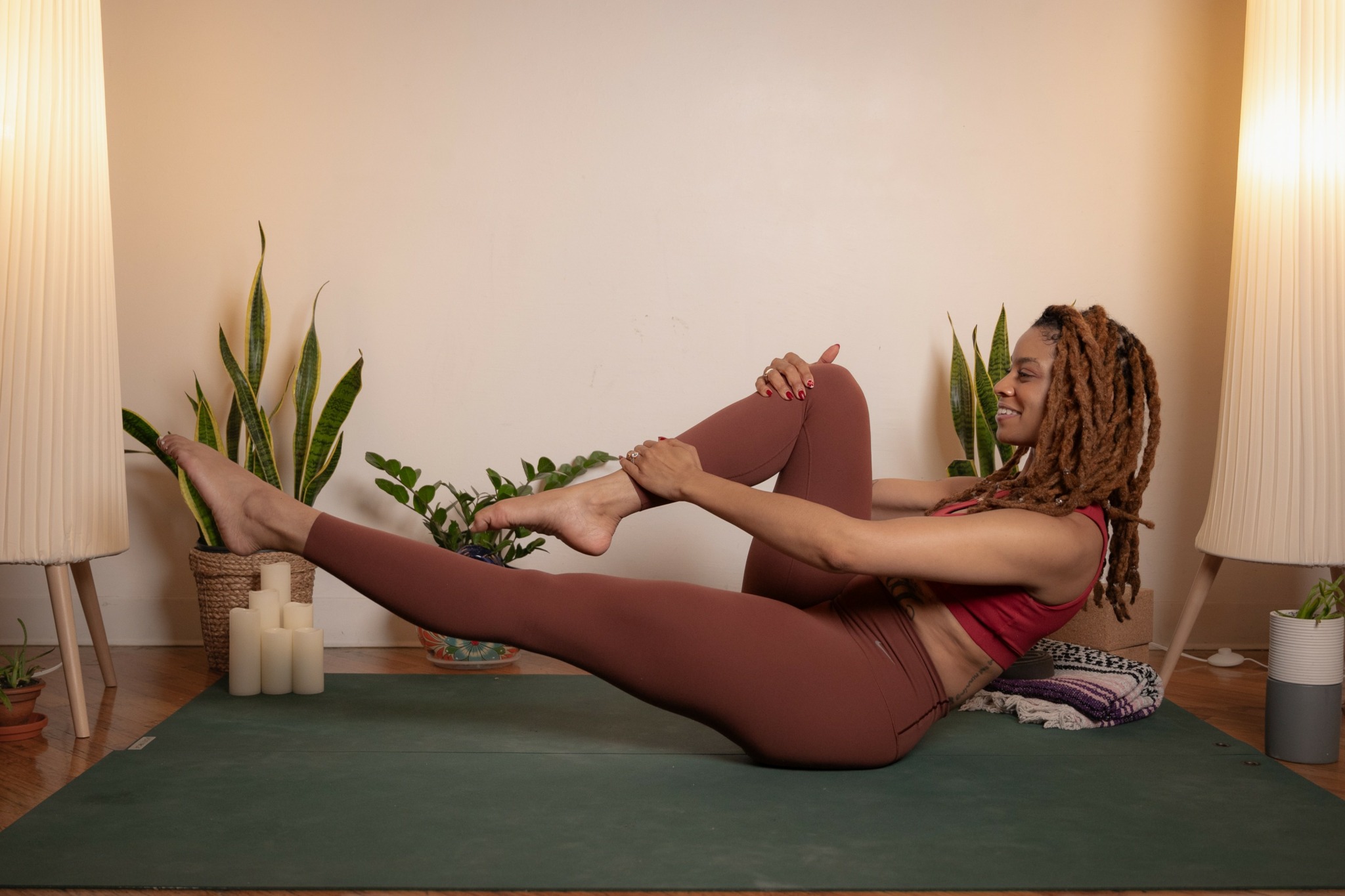We caught up with the brilliant and insightful Tay Milburn a few weeks ago and have shared our conversation below.
Tay, thanks for taking the time to share your stories with us today So let’s jump to your mission – what’s the backstory behind how you developed the mission that drives your brand?
Fringe Pilates’ mission is to serve those that love and heal on the fringes of society and mainstream fitness spaces. It’s important to me that folks who identify as people of color, queer, larger-bodied, and otherwise marginalized groups feel supported and embraced by the culture we’ve built at Fringe.
This mission is deeply personal. In 2019, after being diagnosed with sarcoma cancer and undergoing four surgeries, Pilates became an important tool for rehabilitation. It helped me not only regain mobility but also reconnect with my body in a meaningful way. What started as a journey of recovery turned into something bigger—a journey to deeply meet and learn about myself. But as I attended various studios across New York City, I often felt out of place. I was frequently the only Black woman, sometimes the only non-white person, and the socioeconomic differences between me and other clients became glaringly obvious. These divides, both cultural and financial, only deepened my sense of isolation in these spaces.
One pivotal moment came when I decided to invest in an expensive class package at a Brooklyn studio. The owner pulled me aside to say she was uncomfortable with my use of #BlackGirlPilates on social media when it came to posting content within her studio, claiming it misrepresented her studio’s diversity. That interaction opened my eyes to the need for Pilates spaces that truly prioritized cultivating a diverse community of care and inclusivity. It became clear that if I wanted a space where I could feel comfortable and seen in my neighborhood, I would have to create it myself. That was when I knew I had to open Fringe Pilates.
Fringe was born out of the desire to create a space for people who, because of their embodiment or identity, experience group movement haphazardly. Whether you’re Black, queer, in a larger body, or simply someone who doesn’t feel welcome in mainstream fitness spaces, you’ll find sessions where you can feel safe, supported, and seen at Fringe. I wanted to build a community where people who’ve felt isolated, as I did, could connect and heal.
For me, this mission goes far beyond Pilates. Growing up as an only child in suburban Houston, I was often bullied for being different—a “goody two shoes” who avoided trouble and followed the rules. I never felt like I fit in, and finding a true sense of community was something I always longed for but never experienced until I found Pilates. Pilates, and movement spaces, became my first real community, and that feeling of belonging has utterly transformed my life. That’s the heart of Fringe: creating a space where others who’ve felt isolated—whether in childhood or adulthood—can finally find joy and connection.
At Fringe, we’ve built a culture where people can show up exactly as they are. When I see clients come to class with their bonnets or scarves, it reminds me of how comfortable and safe they feel in this space, and that’s exactly what I hoped to create. Growing up, I was embarrassed about wearing a scarf at sleepovers with non-Black friends, trying to hide a part of myself to fit in. Seeing my clients fully embrace themselves in this space is a sign that we’ve built something special.
Community is at the heart of everything we do at Fringe. It’s not just about the workout—it’s about creating a place of healing, connection, and belonging. We exist because people believe in us and keep showing up, and we’re committed to making sure everyone who walks through our doors feels supported in their journey. This mission is meaningful to me because it’s about more than movement; it’s about building an intentional studio where those who’ve been on the fringes of society and wellness can find healing and a true third space.
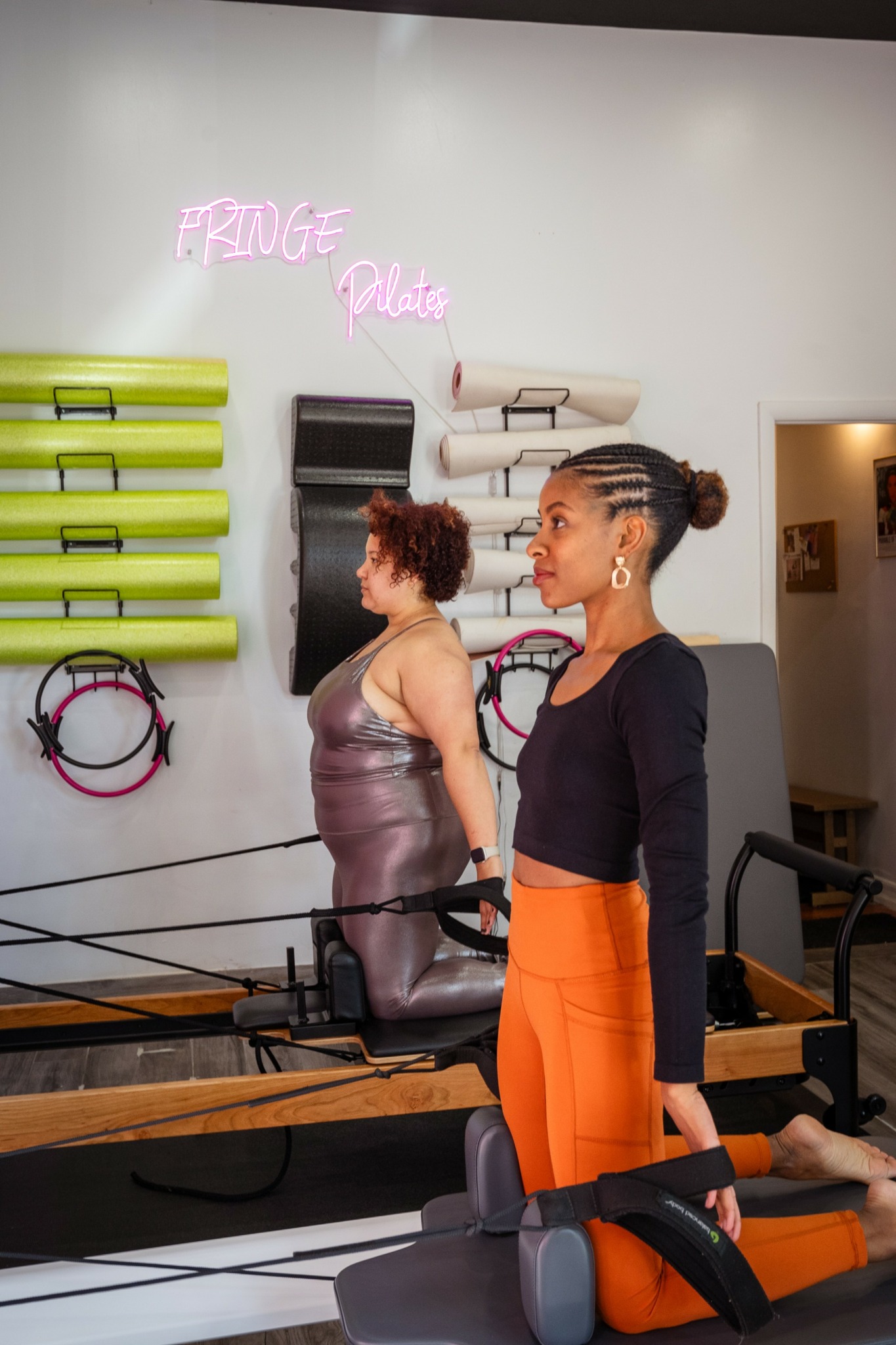
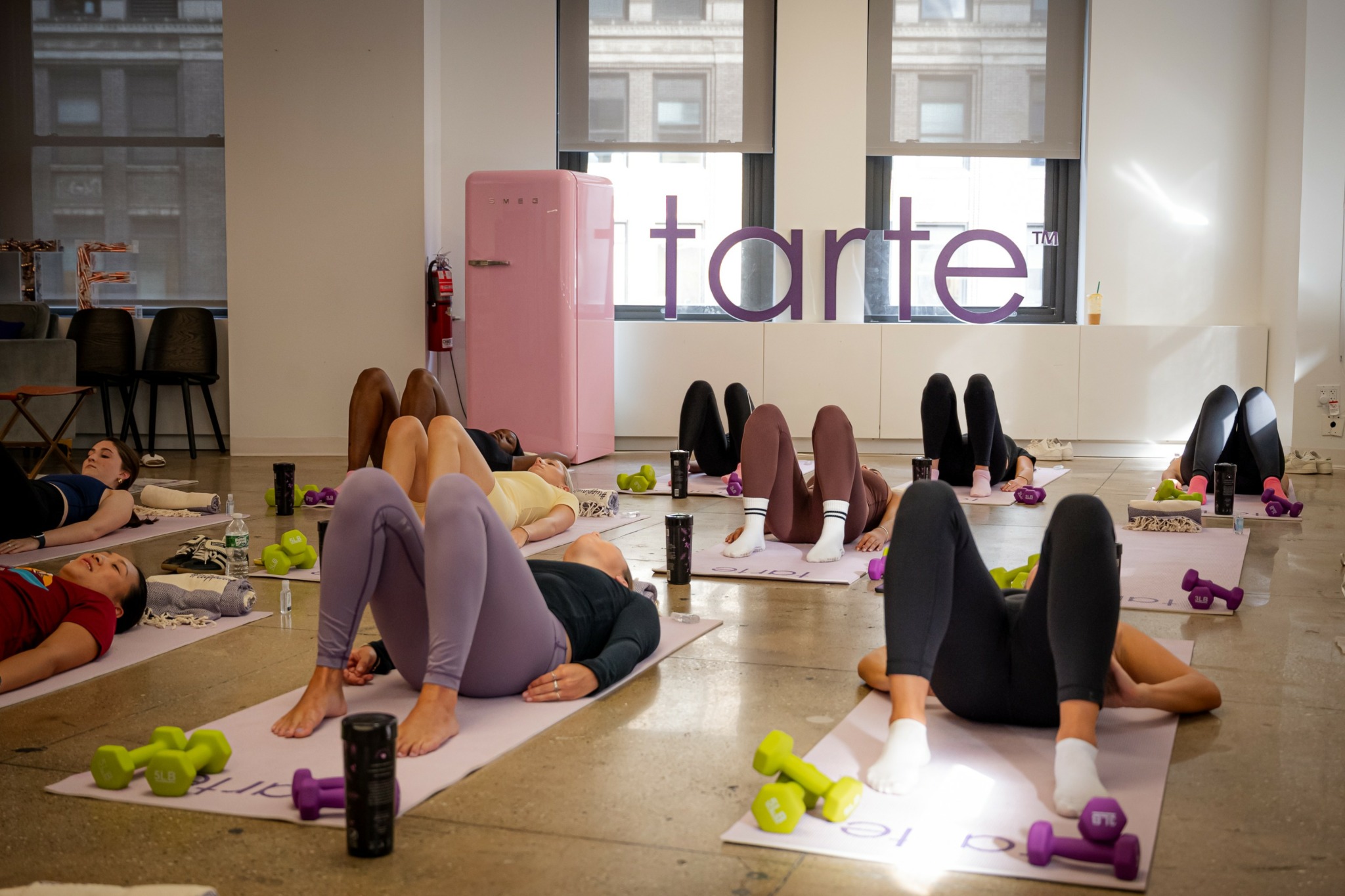
Awesome – so before we get into the rest of our questions, can you briefly introduce yourself to our readers.
My name is Tay Milburn. I’m from Houston, Texas, and I moved to Brooklyn, New York, in 2019. Before moving to New York, I worked as a kindergarten teacher for five years. While there were glimmers of happiness in teaching, the classroom environment often required me to be someone inauthentic to my true self. I loved the art of teaching, but I found the demands of being a schoolteacher to be incredibly stressful with very little reward. As a lifelong high achiever with dreams of maybe becoming a famous musician, I felt stifled in that role. Seeking a new direction, I moved to New York to find a stronger, more ambitious version of myself and to explore a new career path.
I landed a teaching fellowship at the Brooklyn Museum, where I taught process-based art to children. While I enjoyed that work, the pandemic drastically altered the arts education landscape, forcing me back into the classroom, where I once again felt disconnected and unhappy. That’s when my wife encouraged me to follow my passion for Pilates. Pilates had brought me joy even while living in Houston, and it became vital during my recovery from cancer treatment. With her support, I got certified and decided to take a leap into a new career.
Today, I own and run Fringe Pilates, a boutique Pilates studio in Flatbush, Brooklyn, where we offer small group and private Pilates sessions, and sometimes yoga. Our mission is to create a safe and inclusive space for people who’ve historically been marginalized in mainstream wellness spaces—particularly people of color, queer folks, larger-bodied individuals, and anyone who doesn’t feel welcome in traditional fitness environments. In addition to this, we distinguish ourselves with our commitment to small group classes, where every client receives personalized attention to ensure they feel safe and supported. Many of our clients are new to Pilates and may feel nervous or afraid of getting injured or being judged, so we intentionally create a space that’s both welcoming and empowering.
Beyond our classes, I’m incredibly proud of the community initiatives we’ve built. We host a monthly Morning Glory series, which is a donation-based mat class at Whisk & Whiskey Cafe in Park Slope. This series is about making Pilates accessible to everyone, regardless of financial barriers, and bringing movement to the wider community. I also co-organize the annual Gay Ass Wellness Fest (GAWF) in Bushwick—a wellness festival centered on queer and BIPOC communities. It’s a day of healing, movement, and celebration, where folks who are often on the fringes of mainstream wellness spaces can gather and feel seen. GAWF just recently occurred on October 13, 2024 for the second year in a row and was bigger, fuller, and even more beautiful than last year.
We also offer community classes throughout the year, including donation-based or free sessions during Juneteenth or special collaborations with other local businesses. These initiatives reflect our mission to give back to our community and curate inclusive spaces for healing and connection. At Fringe, Pilates isn’t just about fitness—it’s about building a supportive community where everyone can feel safe to be their full, authentic selves.
We really are more than a business; we’re a community. We exist because of the people who believe in us and show up every day. We work hard daily to provide so much more than a workout. We offer genuine care, well-trained instructors dedicated to their craft, and a space where everyone is valued. Our clients know that when they come to Fringe, they’re not just getting a class—they’re getting a community that shows up for them.
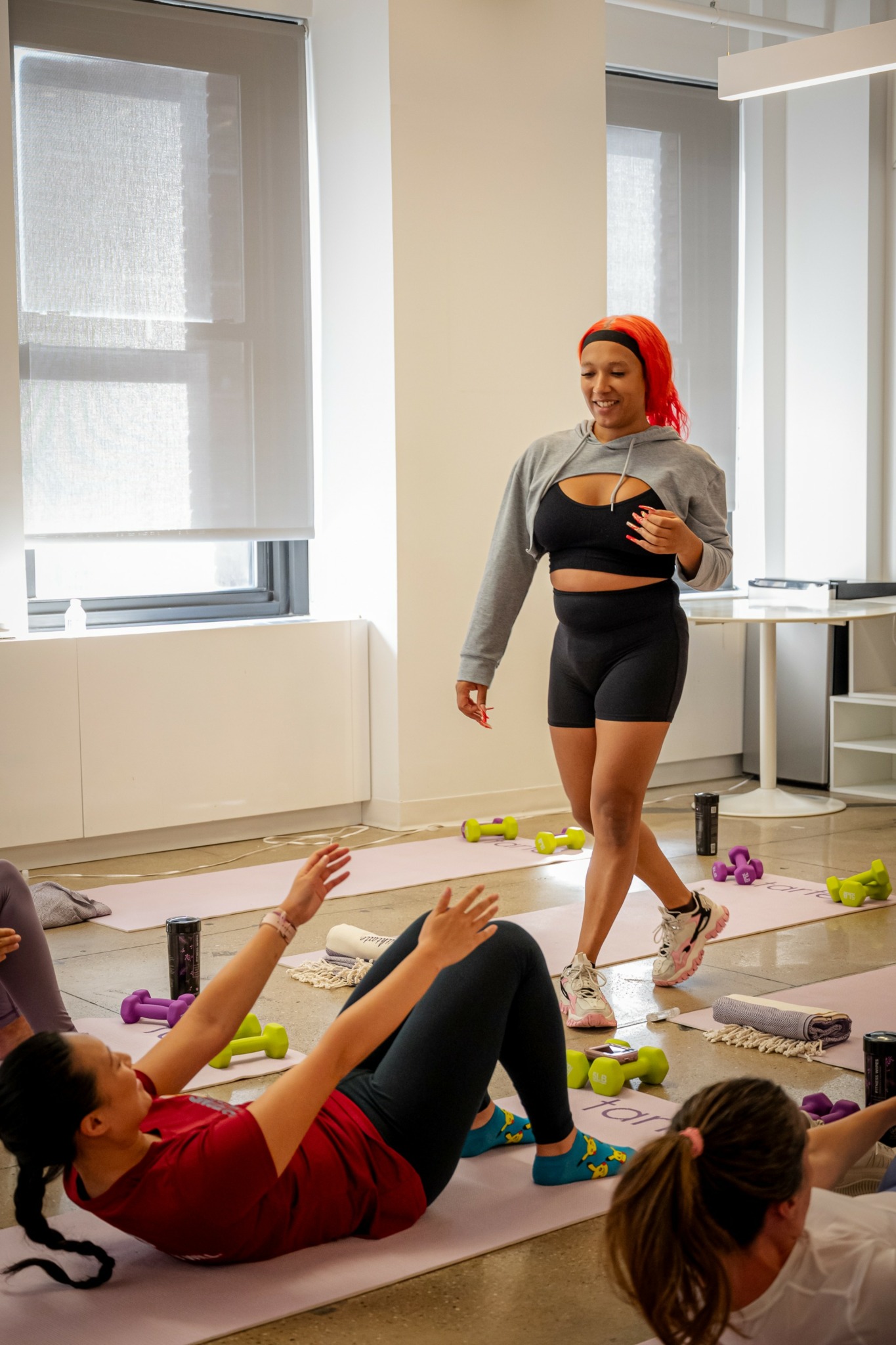
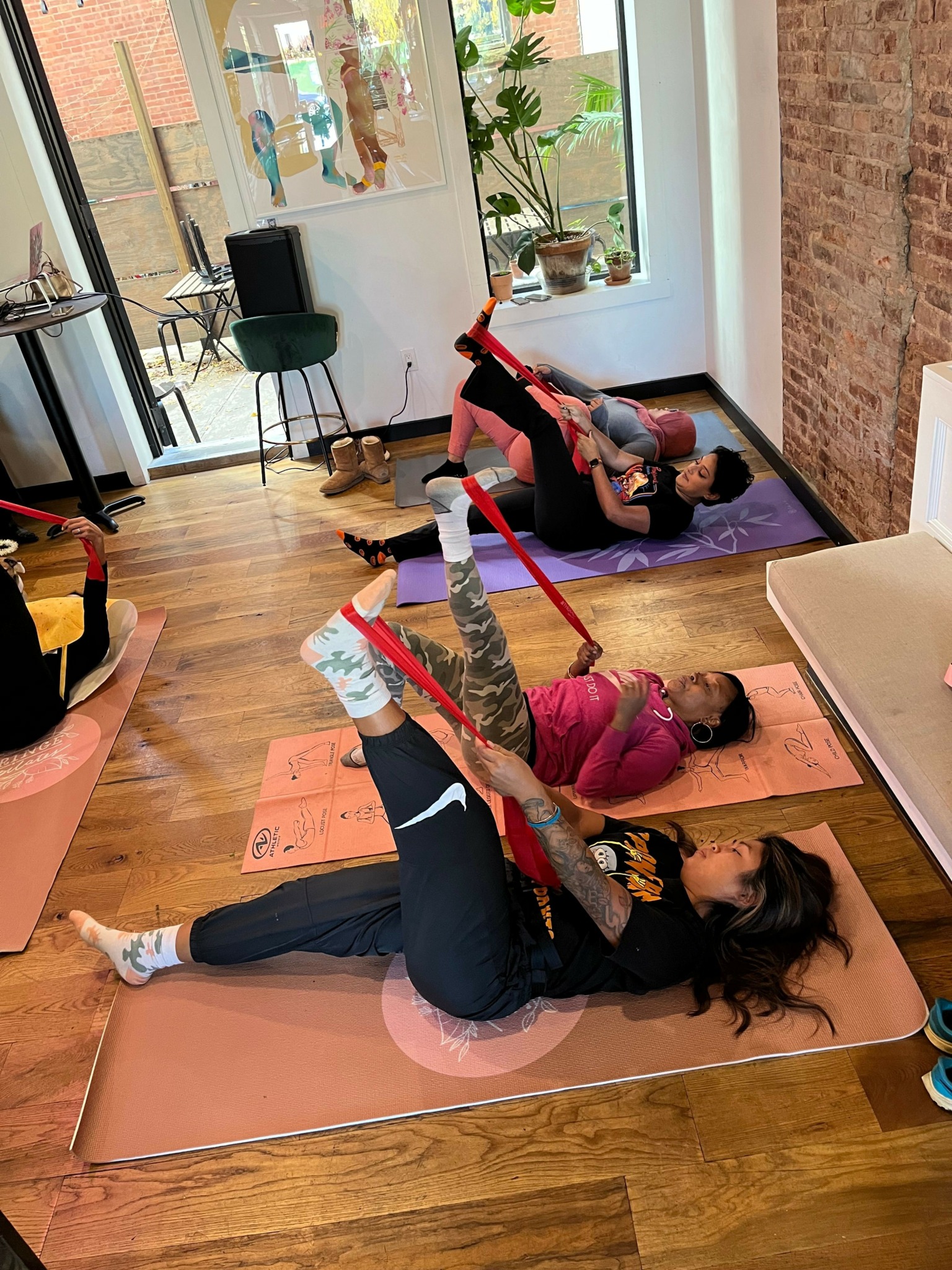
How do you keep your team’s morale high?
When it comes to managing a team and maintaining high morale, my biggest piece of advice is to lead with humility, trust, and genuine care. I believe that a business is only as strong as its people, and for better or worse, I’m not willing to put profits over the people who make Fringe Pilates what it is. As a true believer in karma and goodness, I know that keeping my team respected, happy, and supported is what’s best for the overall health of the business.
I recognize that while Fringe was my dream, it thrives because of the collective effort of my team. Many of my instructors are even more educated and talented than I am in certain areas, and I embrace that. Their unique teaching styles and connections with the community contribute to the cultural fabric of the “Fringe fam.” I make sure to acknowledge and celebrate their strengths, which helps create an environment where everyone feels valued and empowered to do their best work.
Transparency and fairness are also key. We pay our instructors as much as we can afford, and I’m always open about growth, changes, and updates that affect their work. I want them to know that their well-being is a priority, and we’re all in this together. To keep their work exciting and inspired, I encourage ongoing education and even offer an annual education stipend to support this often costly endeavor. It’s important to me that they have opportunities to continue learning and growing in their craft.
Maintaining high morale also comes from fostering open communication and creating a space where my team can be their authentic selves. I encourage them to teach in ways that reflect their own personalities and to engage with clients in a way that feels natural to them. By delegating responsibilities and trusting them to lead in their areas of expertise, I ensure that everyone feels a sense of ownership over what we’re building.
Ultimately, managing a team is about collaboration, trust, and respect. By keeping my team happy and making sure they feel supported and valued, we’ve built something much more than just a Pilates studio—we’ve created a community. And when the team thrives, the business thrives too.
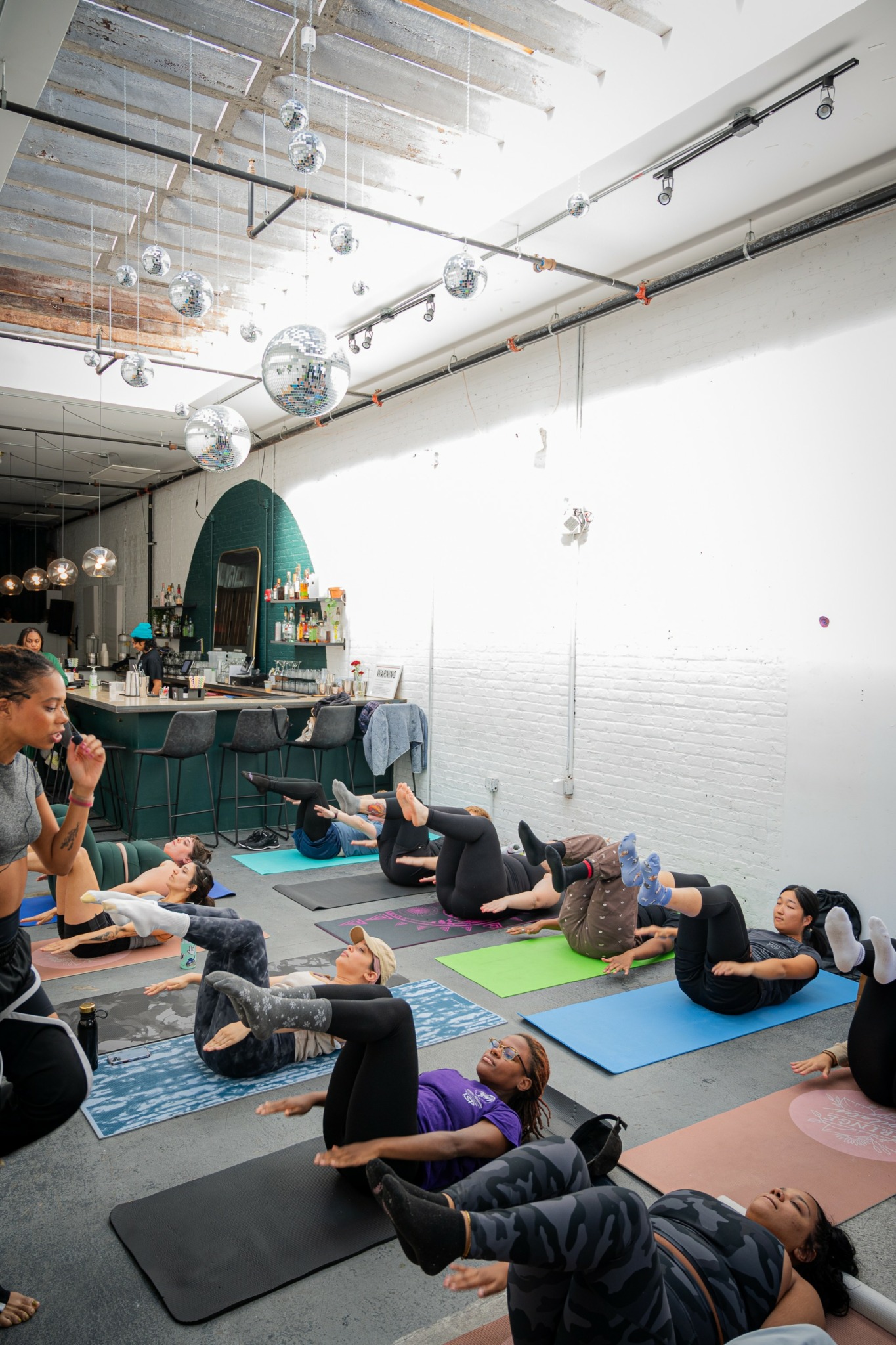
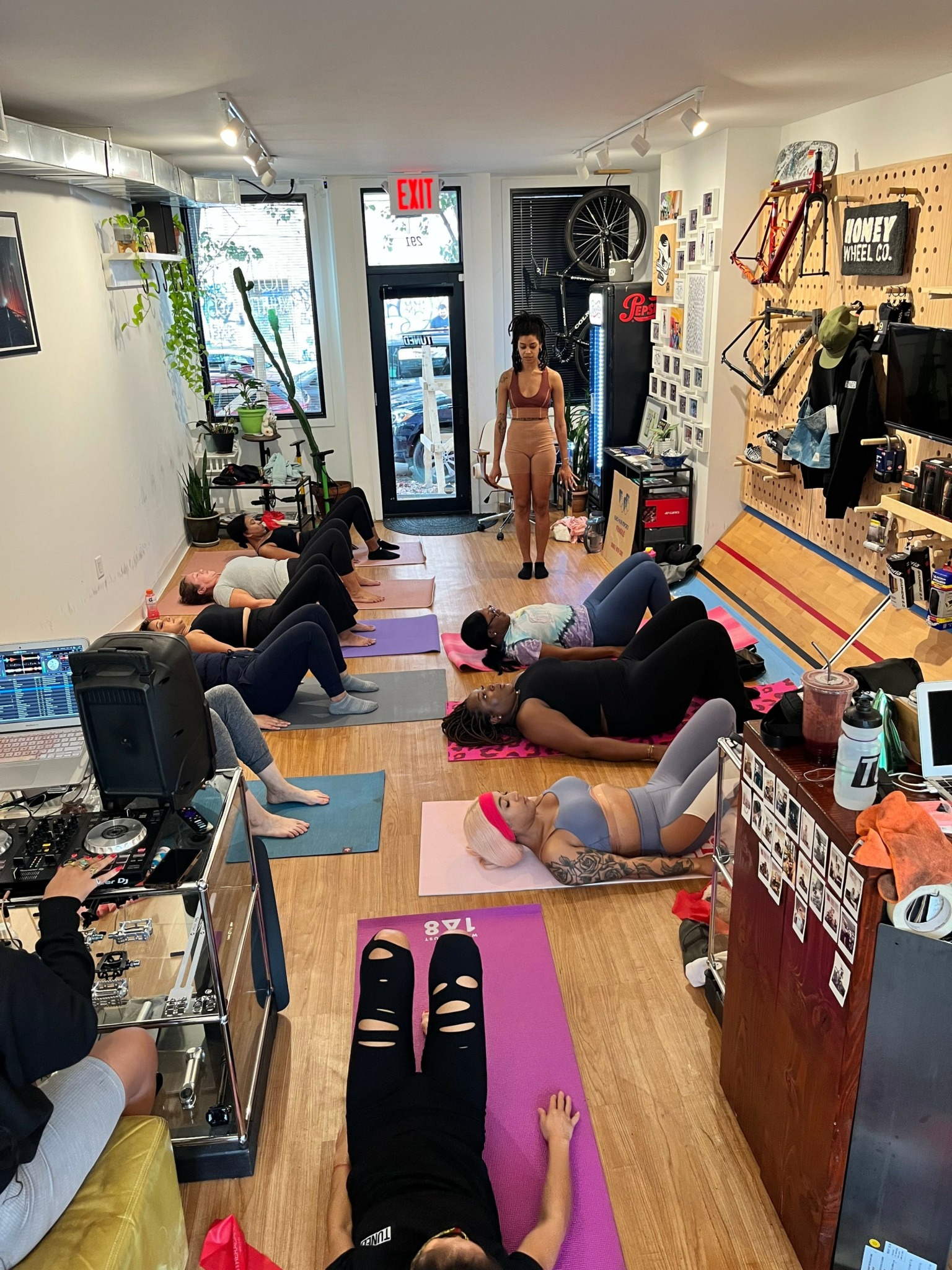
We’d love to hear the story of how you built up your social media audience?
Fringe Pilates began as a pop-up Pilates series where I would rent spaces or collaborate with small business owners around Brooklyn, bringing a unique Pilates experience to different locations. Classes lasted anywhere from 50 minutes to an hour, followed by vegan snacks, drinks, and sometimes a DJ. Building an audience was challenging without a permanent studio space, so I had to get creative with my social media strategy.
When I first started, I experimented with a variety of strategies, learning from small business podcasts, other Pilates studio owners, and marketing “gurus” with online starter courses. There was a lot of trial and error involved as I figured out what worked best for my brand and audience. The first step was building an email list to drive people to my social media and Eventbrite pages. I also made sure to stay active on social media, even while I was still refining how to connect with potential clients.
For anyone just starting out, my advice is to envision your ideal client and speak directly to them in your posts. Knowing who you’re trying to reach makes your content more relatable and engaging. But building a presence takes time, and it’s important to be patient and consistent.
I also learned that social media is all about experimentation, especially when you’re not coming from a marketing background. I didn’t have a large personal following, so I tested different platforms and content styles. While I felt most comfortable on Instagram, I had to explore where my ideal clients were spending their time, which led to decisions about which platforms to focus on.
Once I opened the physical studio, I decided it was time to bring in professional help. I hired a marketing duo who helped me create social media calendars and develop eye-catching, authentic content. They also taught me how to express my voice online in a way that resonated with my audience. After working with them for about a year, we integrated them more into the business, and now they handle our Instagram posts for half the month while providing content calendars and monthly strategy meetings.
When you’re ready to hire a marketing person, team, or duo (like we did), take time to find people who truly understand your vision and genuinely root for your success. Don’t feel pressured to go with the most expensive option—go with what feels best for you and aligns with your brand.
If you’re just starting out, focus on understanding your audience, keep experimenting, and don’t hesitate to seek help when you’re ready. Building a social media presence takes time, but staying consistent, authentic, and adaptable will help you connect with the right people.
Contact Info:
- Website: https://Fringepilates.com
- Instagram: @fringepilates
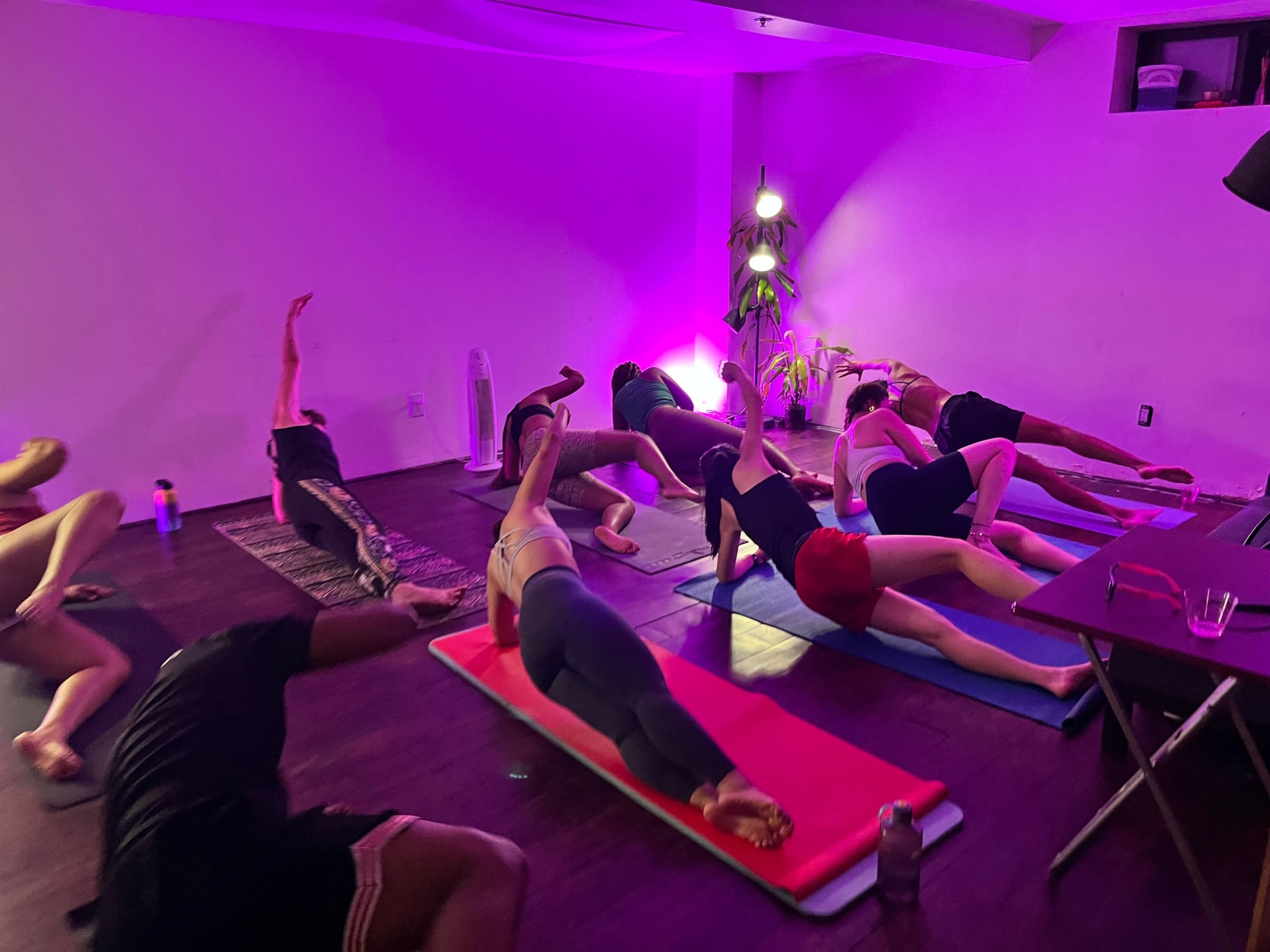
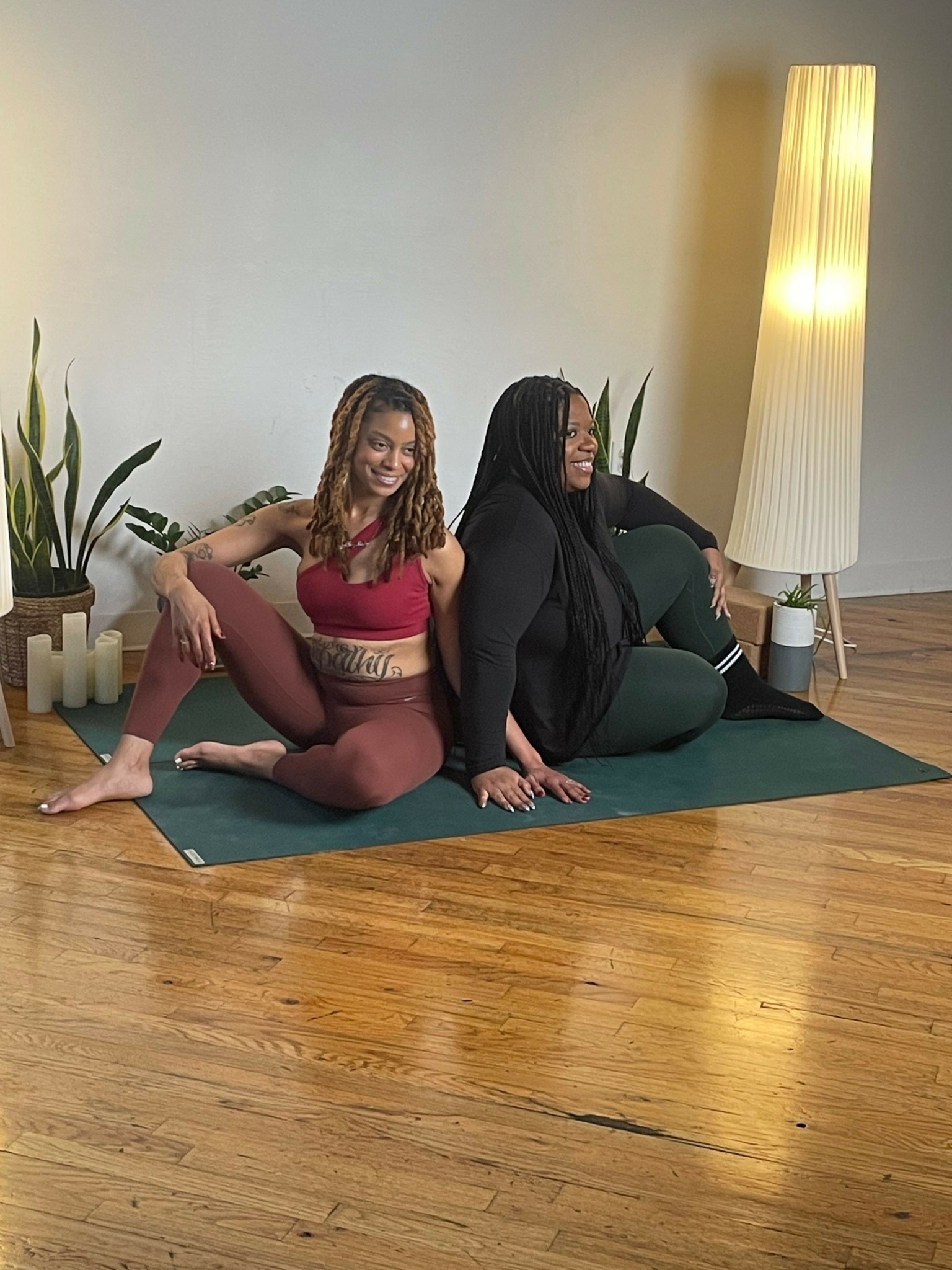
Image Credits
Jay Charlii


